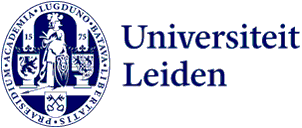
Jasper’s day - from Leiden to Brussels to Voorschoten
On Monday, 13 October, Jasper will travel to Brussels with a delegation from Key Region Leiden. Why is this collaboration important? And who will he be having dinner with that same evening in Voorschoten? Jasper shares his account of a long and interesting Monday.
Jasper Knoester is the dean of the Faculty of Science. How is he doing, what exactly does he do and what does his day look like? In each newsletter, Jasper gives an insight into his life.
‘The alarm goes off at 6:45 after a restless night full of strange dreams. I get up with some effort. There’s no putting it off, though — today I’m off to Brussels with a delegation from Key Region Leiden for the Week of the Region. I’ll be taking part in a series of presentations and discussions with people around the European Parliament and the European Commission. I have a quick breakfast and get ready. The house is still quiet when I close the door behind me. I jump on my bike and head to the station.
What follows is a journey full of delays. There are about ten of us in total, travelling via different train routes and all of us end up arriving in Brussels an hour late. A well-functioning high-speed train network in Europe still seems to be a bit of a fantasy. Luckily, we’ve got enough of a buffer to absorb the delay, and while waiting at various stations, we take a quick look at each other’s presentations.

The university in a network for innovation
Since the summer, Key Region Leiden has been the name under which Leiden and six surrounding municipalities, together with three educational institutions, present themselves as the important innovation region that we are. At its core, there are three major hubs: the Leiden Bio Science Park, the NL Space Campus and Unmanned Valley. I fully support the goals of Key Region Leiden and believe the university can make a valuable contribution and benefit from it too. The region offers countless interesting research questions that can strengthen us further, and some of these will likely translate into new funding opportunities.
We meet at the House of the Dutch Provinces. Over a brief lunch, we welcome a few guests, then move on to the talks and presentations. The main goal, of course, is to raise the profile of Key Region Leiden as a strong region and to explore how this can lead to better funding from the European Commission. Together with Leonie Hussaart (director of Key Region Leiden) and Wietske Veltman (Alderman for Economy, Knowledge, Sport and Health of Leiden), I present the development of Quantum Life Sciences in Leiden.

Frontrunner in life science & quantum
Thanks to our strengths in both life sciences and drug discovery on the one hand, and quantum software development on the other, we have a unique position to be a frontrunner in Quantum Life Sciences in Europe. Within the faculty, the first steps are already being taken in collaboration between several institutes. Director-General Gustav Kalbe listens with great interest and clearly knows his stuff when it comes to quantum technology. He advises us to connect with one or two other strong bioscience parks in Europe with complementary strengths. That turns out to be the key message of the afternoon — also in other discussions, such as how to strengthen the transition from start-up to scale-up: focus on your strengths and connect with other regions in Europe. That’s how you can claim a knowledge and innovation domain and secure support.
‘I read the last updates about the water leak in the Huygens building.’
A farewell dinner and a water leak
At four o’clock I have to leave, because in the evening the deans will be presenting their farewell gift to Annetje Ottow, who stepped down as President of the Executive Board on 1 September. The gift is a dinner in Voorschoten. On the way, I read the latest updates about the large demi-water [demineralised water] leak in the Huygens building, which has unfortunately forced us to close it for the next few days. It looks worrying, though we don’t yet have a full picture of the damage. I know it’s in the capable hands of colleagues and experts, so I focus on meeting notes for tomorrow.

Thankfully, the journey back goes a lot more smoothly than the trip out. I arrive at the restaurant right on time at a quarter past seven, where I’m warmly greeted by friendly, familiar faces. It’s a lovely evening with great food, which Annetje clearly enjoys. We each share a few personal words, and just after ten, we say our goodbyes.
Back home, I help Kamiel briefly with a book report and then go over the last documents for tomorrow. It’s well past midnight before the light finally goes out. Not my usual bedtime, but today it couldn’t be helped. At least a short night has one advantage — not much time left for strange dreams. That’s comforting!’
